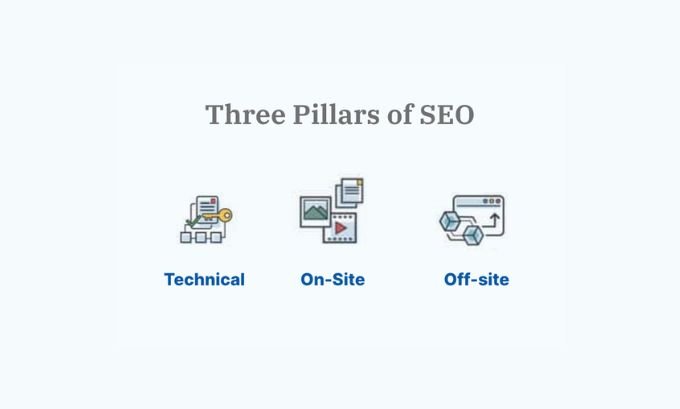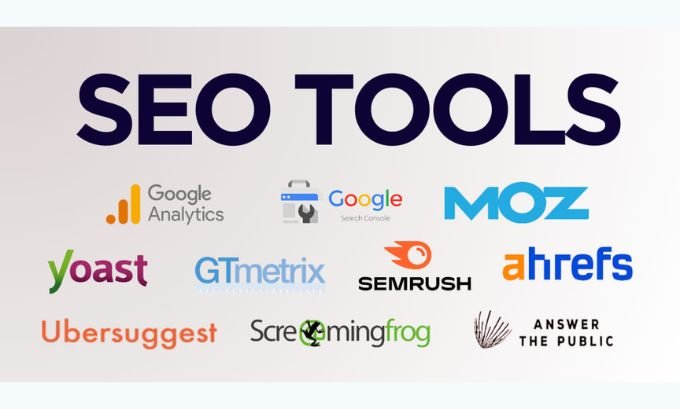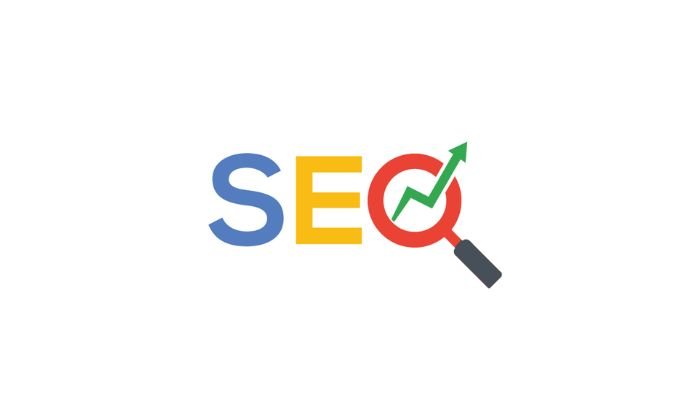SEO marketing is the art and science of making your website easily discoverable by people searching for information on the web. In simple terms, it’s a series of steps that help your website appear higher on search engines like Google, so you attract more visitors without paying for ads.
This guide breaks down everything you need to know about SEO marketing, explains how each part fits together, and gives you real-world advice to help you succeed—even if you’re just getting started.
Table of Contents
What Is SEO Marketing? (Quick Answer)
SEO marketing means using smart strategies so your website can rank high on a Search Engine Results Page (SERP) for keywords that matter to your business. It covers everything from how your website is built (Technical SEO), to the content you create (On-Page SEO), and even the reputation you build on other sites (Off-Page SEO). Done right, SEO marketing connects you with the people who need your content, product, or service most.
Why Does SEO Marketing Matter?
Most online journeys begin with a search. If your site appears near the top of Google or Bing’s results, you’ll get more clicks and more business—without spending on ads. Plus, SEO marketing builds long-term trust and visibility for your website.
The Three Pillars of SEO Marketing

Think of SEO marketing as a three-legged stool. You need all three for balance and results:
On-Page SEO: Optimize Your Content
On-Page SEO is about making each page on your website as relevant and easy to understand as possible for both visitors and search engines.
Key elements:
- Content Quality: Write original content that fully answers searchers’ questions.
- Keyword Research: Use tools like SEMRush to discover the words people use to find your topics. Place these terms naturally in titles, headings, and text.
- User Experience: Organize your content for easy reading. Use clear headings, short paragraphs, and visuals when helpful.
- Internal Linking: Connect related pages on your site so readers (and Google) can navigate to in-depth resources.
Off-Page SEO: Build Authority
Off-Page SEO boosts your site’s reputation across the web, mainly through acquiring backlinks—other reputable sites linking to yours.
Key elements:
- Earning Backlinks: Create great resources others want to reference.
- Guest Blogging: Write articles for related sites to reach new audiences and get quality links.
- Brand Citations: Make sure your business info is consistent in online directories.
Backlinks act as “votes of confidence.” The more high-quality, relevant links you have, the more likely Google sees your site as authoritative.
Technical SEO: Get the Basics Right
Technical SEO covers the backend setups that help search engines crawl, index, and display your website correctly.
Key elements:
- Site Speed: Make your pages load fast so visitors (and Google) don’t abandon you.
- Mobile Friendliness: Ensure your site looks and works great on phones—Google prioritizes mobile versions.
- Structured Data & Sitemaps: Use schema markup and submit an XML sitemap to Google Search Console.
- Crawlability: Fix any errors (like broken links or incorrect robots.txt files) that might stop Google from discovering your pages.
Real-Life SEO Marketing Scenario
Let’s get practical. Here’s how I used SEO marketing for a coaching website:
Challenge: My client had a beautiful site but almost no organic visitors. After a technical audit using Google Search Console, we found slow load times and missing sitemap submissions. We fixed these with simple plugins.
Next, using Keyword Research in SEMRush, we found high-potential terms like “online math tutoring for teens.” We updated key pages and wrote blog posts focused on topics parents actually searched for.
Finally, we reached out to parenting blogs for guest posts and earned a few solid backlinks. In four months, the site went from buried on page 5 of the SERP to top 3 results for several critical keywords—leading directly to more student sign-ups.
What I Like About SEO Marketing
- Works Long-Term: Once set up, rankings don’t disappear overnight like paid ads.
- Drives Relevant Traffic: SEO brings in people already searching for your expertise or product.
- Insights for Growth: Analytics from Google Search Console and SEMRush reveal what content works (and what needs improvement).
- Builds Trust: High organic rankings suggest to users (and Google) that your site is worth visiting.
Areas for Improvement in SEO Marketing
- Takes Time: Unlike paid ads, results aren’t instant. It often takes months to climb up the SERP.
- Technical Learning Curve: Some Technical SEO aspects can be tricky for beginners.
- Constant Updates: Search engines (like Google) update their algorithms often—SEO success requires ongoing attention.
- Quality Over Quantity: Not all backlinks are created equal. One strong, relevant link can be worth more than dozens of low-quality ones.

Handy Comparison Table: Essential SEO Marketing Tools
| Tool Type | Popular Options | Main Purpose |
|---|---|---|
| All-in-One SEO Platforms | SEMRush, Ahrefs, Moz Pro | In-depth keyword research, audits, competitor analysis |
| Search Engine Consoles | Google Search Console, Bing Webmaster | Monitor site health, index new content, fix errors |
| Keyword Tools | Ubersuggest, AnswerThePublic | Find keyword ideas and search questions |
| Technical SEO Tools | Screaming Frog SEO Spider, GTmetrix | Spot errors, diagnose speed and structure issues |
| Analytics | Google Analytics 4 | Track user behavior, measure results |
Just like TokyoMart.store boosted its online store visibility, smart SEO marketing can help eCommerce sites rank higher and attract more organic shoppers. Platforms like LinkLuminous.com play a key role in your SEO marketing plan by helping you manage backlinks and build trusted site authority.
FAQ: Answers to Common SEO-Marketing Questions
1. How long until I see results from SEO-marketing?
Most websites start seeing noticeable changes in 3–6 months. Results depend on your competition and how much you improve.
2. Should I focus on keywords or content quality?
Both matter! Use keyword research to guide your topics, then create high-quality content that answers user questions.
3. What are backlinks and why do they matter?
Backlinks are links from other sites to yours. They signal authority to Google and help boost rankings—especially if they’re from trusted sources.
4. Is technical SEO necessary for a small business website?
Yes. Even basic Technical SEO (like submitting a sitemap in Google Search Console and optimizing for mobile) can make a big difference.
5. How do I know if my SEO-marketing is working?
Use tools like SEMRush and Google Search Console to track rankings, organic traffic, and click-through rates from the SERP.
6. Do I need to pay for SEO tools?
Free tools can get you started, but paid platforms like SEMRush or Ahrefs give richer data and deeper insights.
7. Can I do SEO-marketing myself or should I hire an expert?
Many business owners start on their own. As your site grows or competition increases, you may benefit from expert help for advanced Technical SEO or large-scale backlink strategies.
Conclusion: Your Next Steps in SEO-Marketing
SEO-marketing is the foundation of any successful online business. By focusing on On-Page SEO, Off-Page SEO, and Technical SEO—and using trusted tools like SEMRush and Google Search Console—you can grow authority, drive targeted traffic, and achieve long-term results.
Begin by auditing your site, researching what your audience is searching for, and creating content that solves real problems. As results build, so does your authority on the Search Engine Results Page (SERP).
Ready to get started? Take your first step with a simple action: set up your Google Search Console account and review your site today.
Author Bio
Alex Carter is a digital marketing strategist with over a decade of experience in SEO-marketing. Alex has helped businesses small and large grow their online visibility using evidence-based SEO strategies.
References
- Google Search Central (https://developers.google.com/search)
- Moz – Beginner’s Guide to SEO (https://moz.com/beginners-guide-to-seo)
- SEMRush Blog (https://www.semrush.com/blog/)
- Backlinko – SEO Techniques (https://backlinko.com/)
- Google Search Console Documentation (https://support.google.com/webmasters/answer/9128668?hl=en)
Article last updated: June 2024. All information is fact-checked and kept current for best results.


